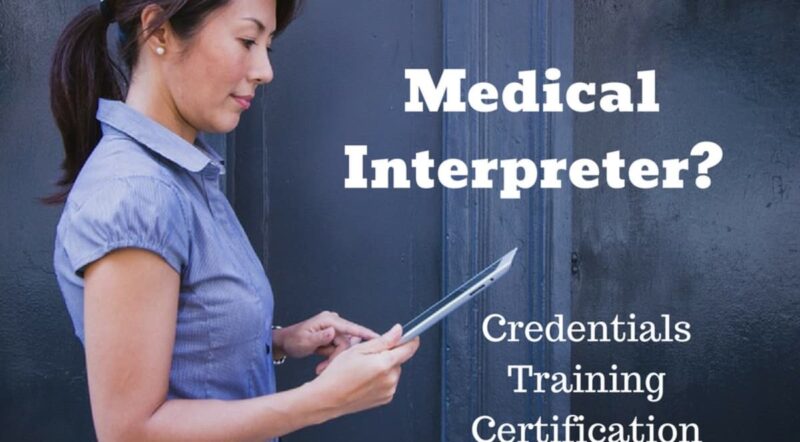You might be interested in pursuing a career as a certified medical translator. How ingenious is that? Medical translation/interpretation is an excellent way to thrive in today’s market.
As a result, the number of illegal immigrants to North America, a group of people who cannot speak English in the healthcare system, has increased. Accordingly, a medical translator or interpreter must have extensive training and a firm grasp of the subject matter. Have you ever wondered what it takes to become a medical translator?
What is medical interpreting?
Working as an interpreter in the healthcare industry adds more complexities to the job’s rewards and drawbacks. The most important factor is the nature of the workplace and the degree of sensitivity displayed by the engaged individuals.
Medical interpreters act as a bridge for patients and healthcare practitioners by properly translating what is spoken from one language into another. In addition to facilitating communication, they are frequently seen as mediators and clarifiers of the problem.
A medical translator must have a solid awareness of medical terminology in both languages they work with to be successful. It is also necessary to have a very high degree of fluency in many languages. In addition, the medical interpreter must read body language and facial expressions accurately to transmit the patient’s message.
Although interpreters should be well-versed in medical jargon, they must keep in mind that many patients will not grasp the words and should be prepared to explain them. A certified medical interpreter may be required to advocate the patients’ interests in some circumstances.
Medical interpreters should adhere to a national code of ethics for healthcare interpreters and national practice guidelines that may help them be socially sensitive. In addition to hospitals, medical interpreters can be found in other healthcare sectors such as dental clinics, rehabilitation institutions, and mental health clinics.
Using a licensed medical interpreter has several advantages, which are listed below.
- Detailed medical records
A complete medical history and an awareness of the patient’s present symptoms are essential components of patient care. For non-English speakers, this might be a difficult task.
Even if the patient has a multilingual family member, that individual may not be able to explain surgical procedures or medical terminology to the patient adequately.
However, this is what a licensed medical interpreter has been taught to accomplish. They will be able to obtain the most up-to-date medical history from the patient and facilitate clear communication amongst the parties involved.
- Patients and their loved ones experience less anxiety
Getting medical attention may be stressful for anybody, but it can be even more challenging if you cannot communicate. When a licensed medical interpreter is not available, patients who need translation use a family member, friend, or even a fluent kid in both languages.
An untrained medical translator may make mistakes when interpreting this individual’s work. They may also neglect or misinterpret a healthcare provider’s information because of their proximity to the patient.
Patients and their loved ones can feel at ease knowing that a third-party expert interpreter will understand their remarks.
- Improves hospitals, offices, and clinics’ operational efficiency
To ensure the accuracy of your patient’s information and the smooth flow of dialogue, hire a competent medical translator. Your intake and follow-up sessions will be more efficient because you won’t have to rectify erroneous information.
Having a professional healthcare interpreter present at your doctor’s office, clinic, or hospital is beneficial. Pharmaceutical translation companies are always accessible, whereas a family member may not be able to make every appointment.
With professional interpretation, nurses and other staff members may once again focus on the work they have been educated for instead of interpreting.
- Enhances your reputation in the community
Last but not least, hiring qualified medical interpreters will increase your reputation in the community. Because interpreters are there, patients who cannot converse in English will feel more at ease at your medical institution, doctor’s office, or clinic.
Providing medical interpreters demonstrates that you are concerned about your patients’ ethnicity and cultural backgrounds. As a result, everyone is calmer, which aids healing on a far deeper level.
Conclusion
The job of a medical interpreter can be both rewarding and difficult. Healthcare providers rely on you to be their main point of contact with patients. An interpreter is extremely beneficial to patients who cannot speak English.
The classes are well-structured and adaptable to the needs of every student. Prepare for the course by showing English and the intended language competency. Pharmaceutical translation services are a rewarding occupation that allows you to aid both patients and healthcare professionals.
Using expert translation services, you may maintain your original meaning while connecting with a new audience to expand your business. Consult the professionals. They will inform and assist you in meeting your needs through their services.
